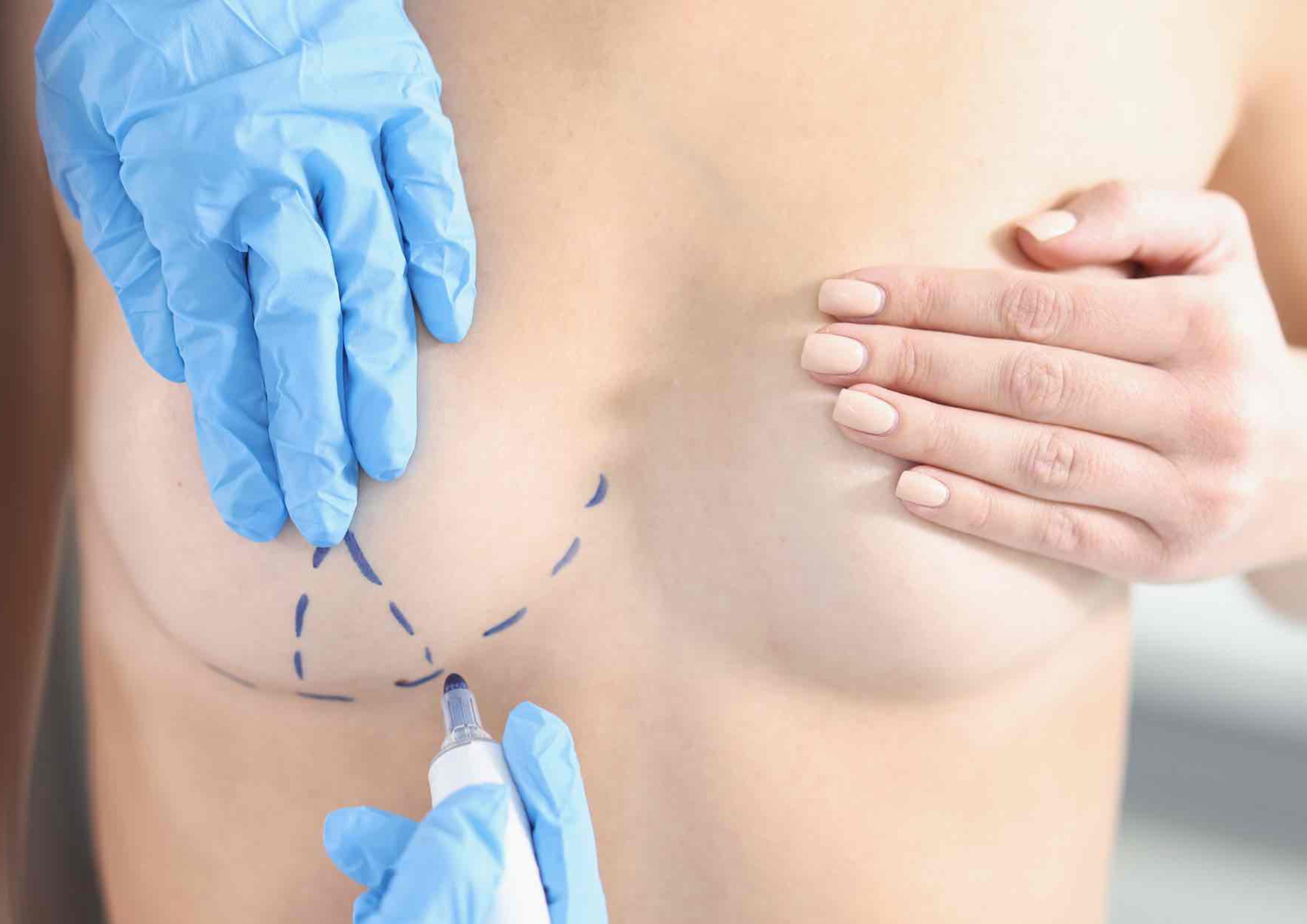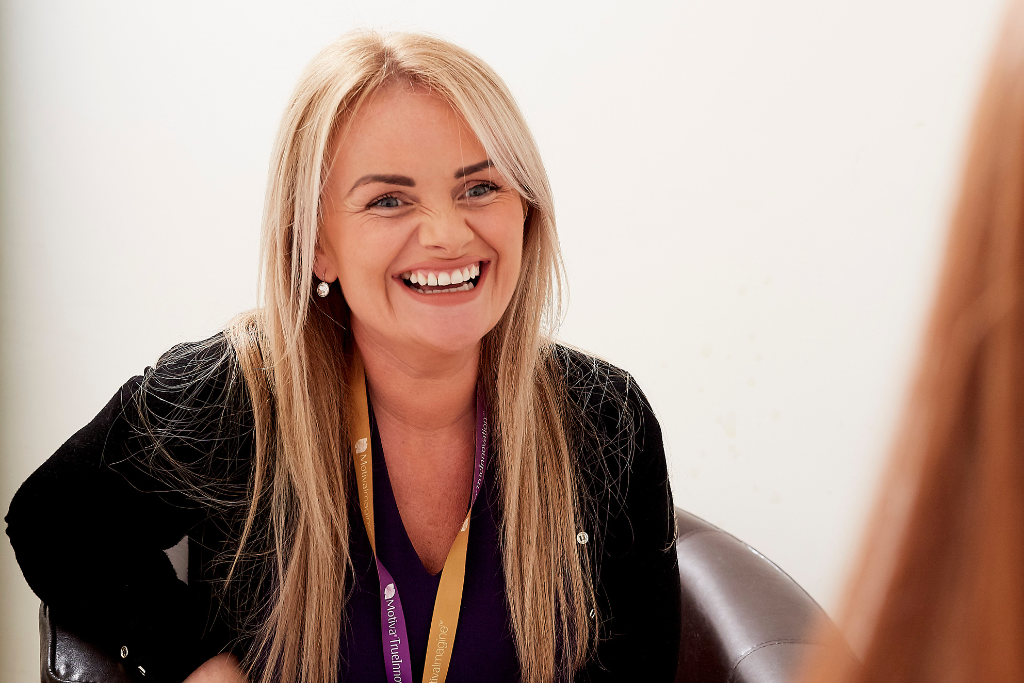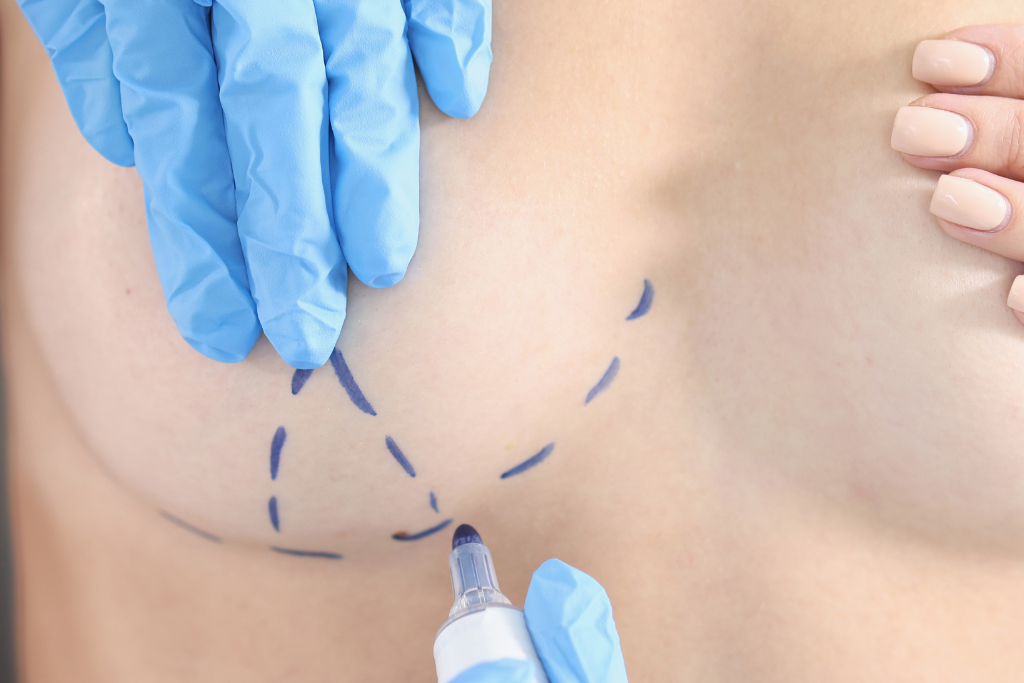Your breast reduction surgery shouldn’t have affected your ability to breastfeed - however, there are some important considerations to be aware of, which this article will discuss.
At Pall Mall, your wellbeing is our top priority, which is why we offer all of our cosmetic surgery patients two years of aftercare as standard. This way, we can support you at every step of your procedure journey.
If you’ve already had a breast reduction or are considering surgery, let’s take a closer look at how this will impact breastfeeding.
Understanding how breastfeeding works
When you look at the anatomy of a breast, it is made up of a mixture of fatty and glandular:
- Tissues
- Nerves
- Ligaments
- Blood vessels
Glandular tissue, also known as lobules, is where milk is produced, and then transported through ducts to the nipples. We all know how vital the nipple area - or nipple-areola complex - is to breastfeeding.
It is the nerves in this area that produce the neurohormonal reflex - the sending of signals to the brain to begin the production of milk and its continued flow.
Therefore, though a breast reduction does not automatically rule out breastfeeding, any type of cosmetic surgery regarding the breast may still have an impact on your ability to produce breast milk.
Can you breastfeed after a breast reduction?
Most women undertake a breast reduction to not only improve their emotional wellbeing but also their physical health.
A survey by the National Library of Medicine found that over 95% of patients surveyed 10 years after their breast reduction were still satisfied and would do it again.
No decision for surgery is taken lightly, and if it will make you feel happier, more comfortable, and confident in your body, it is most likely worth it.
However, if you are planning to have children in the future, you could find yourself asking questions like ‘Does a breast reduction affect breastfeeding?’.
We’re happy to tell you that, more often than not, this type of surgery does not affect your ability to breastfeed.
Usually, women have the same amount of milk-producing tissue - it’s just that those with larger breasts have an increased amount of fat and other tissue not related to milk production.
But, just like with any surgery, a breast reduction isn’t completely risk-free and could affect your breastfeeding capabilities.
Before going ahead with your breast reduction surgery, the below factors should be considered.
The amount of glandular tissue left
Unfortunately, it is not possible to know how much glandular tissue vs fatty tissue you have during your consultations. Your surgeon will only know once they have begun operating on you.
They may need to remove some of your glandular tissue in order to reduce your breast size, which could impact your ability to breastfeed.
It completely depends on how much functional glandular tissue you have remaining after your procedure.
For example, the more that has been removed, the higher the possibility that your breastfeeding capabilities have been compromised as it is the ducts that transport the milk.
The surgical technique used
Two main types of operating techniques can be used for breast reduction surgery.
- The lollipop incision - Also known as the vertical method, your surgeon makes just two incisions with this technique.
- The anchor incision - Sometimes referred to as the ‘T’ technique, three distinct cuts are made with this method.
Incisions around the nipple and areola area could affect the nerves and sensation, which can reduce your chances of breastfeeding as the neurohormonal reflex isn’t as strong.
Here at Pall Mall, our consultants are experts in their field. If you do plan to breastfeed in the future, it is important to inform your surgeon so that, if possible, they can choose techniques that will least affect your breastfeeding ability.
The amount of time since your surgery
It’s no secret that recovery from a breast reduction isn’t overnight.
As the weeks and months get further along, any damaged nerves or severed ducts will start to reconnect through reinnervation and recanalisation, respectively.
Reinnervation
This is a process where the nerves rebuild and reconnect.
Typically, it takes most damaged nerves six months to a year to recover - however, some people find it can take up to two years.
As with all surgeries, however, breast reduction surgery is not entirely risk-free. In some cases, the nerves will not return to how they once were.
Recanalisation
We’ve already discussed how detrimental severed ducts can be to breastfeeding capabilities - especially considering it is these that transport the milk.
It’s now thought that the ducts can reconnect to each other and potentially create new pathways to transport the milk.
However, how much recanalisation that occurs is dependent on a variety of factors.
Saying that, it is thought that the actual act of breastfeeding - or lactation - can prompt the body to develop these alternative transport links and, in turn, increase milk supply.
Therefore, the more time between your breast reduction surgery and breastfeeding, the more time you give your body to naturally heal any damage that may have occurred.
Rest assured in the knowledge that breastfeeding after a breast reduction is possible
If you’re considering a breast reduction, or have had one in the past and are asking yourself ‘Can you breastfeed after a breast reduction?’, please find peace in the knowledge that this is still a possibility for you.
More often than not, you will not know this for certain though until you’ve had a baby. You can also get the assistance of a lactation specialist to potentially improve your chances.
There are plenty of benefits to breastfeeding for both mother and baby, such as:
- Breast milk meets your baby’s nutritional needs
- Breastfeeding lowers your risk of diseases and conditions
- Breast milk keeps your baby safe from infections and diseases
However, if you struggle to breastfeed due to surgery or another cause, formula is a nutritious alternative.
Still unsure about your chances of breastfeeding after a breast reduction surgery? Come speak to our experts!
If breastfeeding is a priority to you, you need an expert surgeon. Look no further than Pall Mall.
It’s inevitable that breast reduction surgery will risk your ability to breastfeed - however, your wellbeing is our number one priority, and we will talk you through the options that will have the least impact.
We also offer two years of aftercare, so if you do get pregnant shortly after your procedure, we can help you find solutions that could help.
If you’re on the fence, our consultations are no obligation and totally free at our clinics across the UK?
With no money lost and answers you’re searching for, it’s well worth the visit.
Get in touch with our friendly team today.
- Phone us on 03300 27 26 51.
- Visit one of our clinics across the North West.
- Book an appointment using our contact form and a member of our team will contact you.








